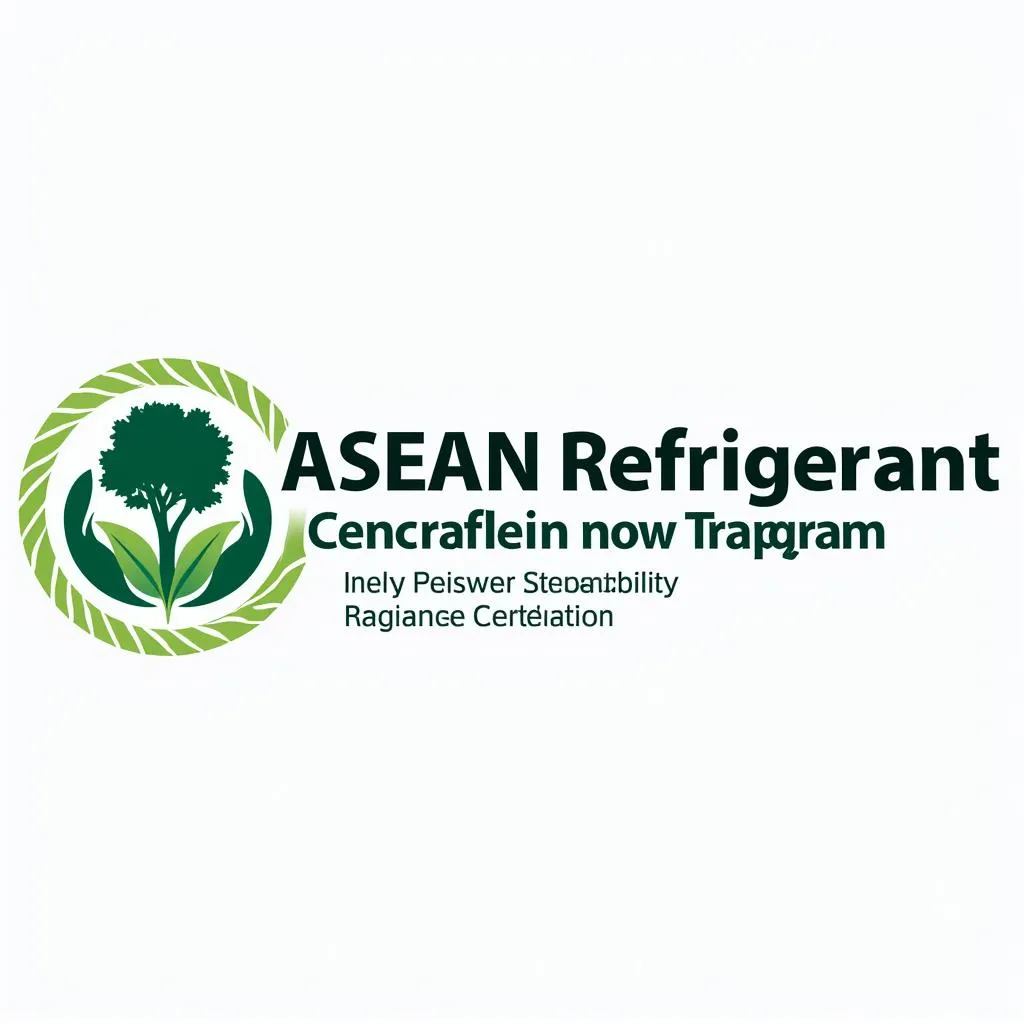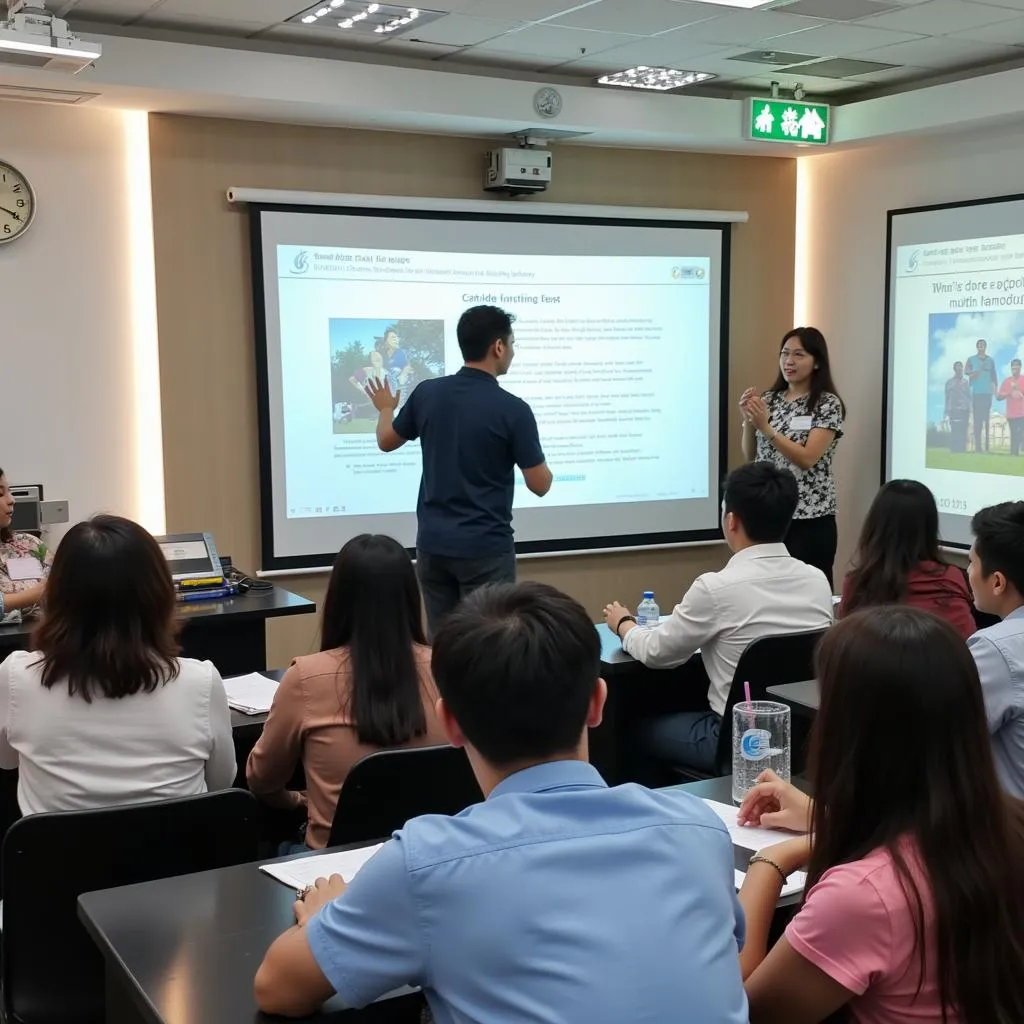The ASEAN refrigerant-certification program represents a significant step towards environmental responsibility and sustainable development within the region. This program aims to regulate the use of refrigerants in various sectors, promoting energy efficiency and reducing the impact on the ozone layer and climate change. Understanding the program’s intricacies, requirements, and benefits is crucial for businesses operating within the ASEAN market.
What is the ASEAN Refrigerant-Certification Program?
The ASEAN refrigerant-certification program is a harmonized approach by the Association of Southeast Asian Nations (ASEAN) to phase out ozone-depleting substances (ODS) and transition to more environmentally friendly refrigerants. This program sets standards for refrigerant production, importation, and usage, ensuring they meet specific environmental criteria.
Objectives of the ASEAN Refrigerant-Certification Program
The primary objectives of the program include:
- Protecting the Ozone Layer: Phasing out the use of ODS refrigerants that contribute to ozone layer depletion.
- Mitigating Climate Change: Promoting the adoption of refrigerants with lower global warming potential (GWP) to reduce greenhouse gas emissions.
- Enhancing Energy Efficiency: Encouraging the use of energy-efficient refrigerants and technologies to decrease energy consumption.
- Harmonizing Standards: Establishing a common set of regulations for refrigerant management across ASEAN member states.
Key Features of the Program
The ASEAN refrigerant-certification program encompasses several key features:
- Refrigerant Licensing and Quotas: Importers and exporters of refrigerants are required to obtain licenses and adhere to specific quotas for controlled substances.
- Product Certification: Refrigerant products must undergo testing and certification procedures to ensure compliance with established standards.
- Labeling and Packaging Requirements: Clear labeling and packaging guidelines are outlined to provide information about the refrigerant’s environmental impact.
- Training and Capacity Building: The program emphasizes training and capacity building for technicians and stakeholders to ensure proper handling and management of refrigerants.
 ASEAN Refrigerant Certification Logo
ASEAN Refrigerant Certification Logo
Benefits of Compliance
Adhering to the ASEAN refrigerant-certification program offers numerous benefits for businesses:
- Access to ASEAN Market: Compliance allows companies to import, export, and sell refrigerant products within the ASEAN region.
- Enhanced Brand Reputation: Demonstrating environmental responsibility through program compliance enhances brand image and credibility.
- Competitive Advantage: Meeting these standards positions businesses as leaders in sustainability and attracts environmentally conscious customers.
- Contribution to Sustainable Development: Participating in the program contributes to regional efforts in protecting the environment and combating climate change.
Challenges and Opportunities
While the program presents significant opportunities, challenges remain:
- Implementation and Enforcement: Ensuring effective implementation and enforcement of regulations across all ASEAN member states.
- Technical Expertise and Infrastructure: Addressing the need for skilled technicians and adequate infrastructure to support the transition to new refrigerants.
- Financial Support: Providing financial assistance to businesses, particularly small and medium-sized enterprises (SMEs), to facilitate compliance.
 ASEAN Refrigerant Training Workshop
ASEAN Refrigerant Training Workshop
The Future of Refrigerant Management in ASEAN
The ASEAN refrigerant-certification program signifies the region’s commitment to sustainable refrigerant management. As the program evolves, it is expected to:
- Adopt stricter standards: Aligning with global trends and adopting more stringent regulations to further reduce environmental impact.
- Promote technological advancements: Encouraging innovation and the development of climate-friendly and energy-efficient refrigerant technologies.
- Foster regional cooperation: Strengthening collaboration among ASEAN member states to share best practices and address challenges effectively.
Conclusion
The ASEAN refrigerant-certification program plays a crucial role in protecting the environment, mitigating climate change, and promoting sustainable development within the region. By understanding the program’s requirements and embracing its objectives, businesses can contribute to a greener and more sustainable future for ASEAN.
FAQs about the ASEAN Refrigerant-Certification Program
1. What types of refrigerants are covered under the program?
The program covers a wide range of refrigerants, including hydrofluorocarbons (HFCs), hydrocarbons (HCs), and natural refrigerants like carbon dioxide (CO2) and ammonia (NH3).
2. What are the penalties for non-compliance with the program?
Penalties for non-compliance vary by country but may include fines, license revocations, and legal action.
3. Are there any exemptions from the program?
Certain applications and specific industries may be eligible for exemptions.
4. How can businesses stay updated on program changes and regulations?
Businesses should refer to official ASEAN channels, national environmental agencies, and industry associations for the latest updates.
5. Where can businesses find support and resources for program compliance?
Several organizations offer technical assistance, training programs, and financial incentives to support businesses in meeting program requirements.
Need further assistance? Contact our 24/7 support team at Phone Number: 0369020373, Email: [email protected], or visit our office located at Ngoc Lien Village, Hiep Hoa, Bac Giang, Vietnam. We’re here to help!

